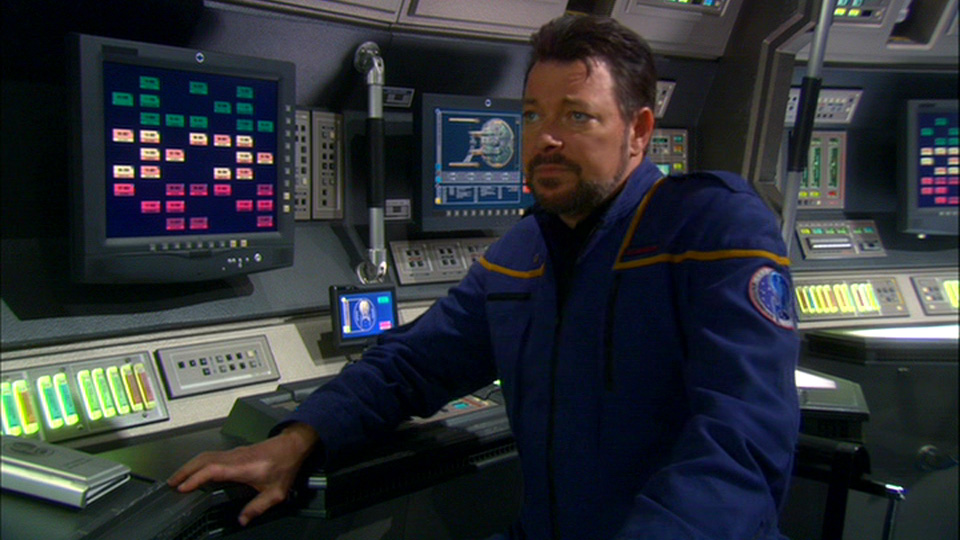What Marvel Can Learn from Star Trek
Written by Ian Thomas Malone, Posted in Blog, Pop Culture
Though the Star Trek franchise will soon celebrate its fiftieth anniversary, much of its on screen canon was released in one decade. The 90s were a great time to be a Trekkie (Trekker) with three different TV series (The Next Generation premiered in 87 and Voyager ended in 01) and four movies out in such a short time span. It would have been hard to fathom in ‘96, with Voyager on network television and First Contact proving that the film franchise could thrive without the original cast, that the franchise would soon be in decline. By 2005, Star Trek was nowhere to be found except for a hundred times a day in re-runs and on DVD and VHS at old yard sales.
Though the franchise would make a comeback just a few years later with the 2009 reboot and will be returning to TV in 2017, it’s hard to imagine a world where Star Trek reaches the same level of prominence it enjoyed in the 90s. Star Trek Beyond is already under fire from fans and members of its own cast for its action heavy trailer and the decision to place the TV series on CBS All Access will severely limit its exposure. The status of entertainment behemoth belongs to a different franchise.
The Marvel Cinematic Universe is the most ambitious shared universe ever attempted. Since 2008, we’ve seen twelve films and four television series released with plenty more on the way. To put things in perspective, the Star Trek franchise has released twelve films and six series in a fifty year span, though Marvel’s TV series have a long way to go before they come close to Trek’s combined total of 30 seasons and 726 episodes.
It’s clear that this is a total that the MCU would like to eventually surpass, along with more films than one can possibly imagine. Backed by Disney, it’s hard to imagine a world where the MCU doesn’t blow that total away. Then again, it was once hard to imagine a world without a weekly Trek series either.
Though the MCU is in little danger of not being a multi-billion entity, there are some reasons to be concerned with its overall longevity. The status of the main Avengers cast post Infinity War is unclear and it seems highly unlikely that all will stay with the franchise. Age of Ultron may have grossed 1.4 billion dollars, but was met with significantly less critical praise than its predecessor. Jessica Jones has been a critical gem, which helps to soften the near irrelevance of its other three series, Agents of S.H.I.E.L.D., Daredevil, and Agent Carter. Recent estimations done by NBC Universal place the viewership of Jessica Jones as competitive with the middle pack of network TV dramas with an impressive performance among the key 18-49 demo, though Netflix disputes these reports.
Not even Chicken Little would say that the MCU is in any danger of imploding anytime soon. Their schedule looks to packed with bankable box office draws all the way to 2019 and a team up of the Netflix superheroes in The Defenders should elevate their smaller screen presence. If the MCU was the seemingly unsinkable Titanic, making its voyage through an ocean of cash, there is one thing to be worried about.
Apathy.
Star Trek: Nemesis and Enterprise didn’t kill the franchise because they were terrible. The chief complaint against Nemesis was that it felt tired and the poor box office can realistically be blamed on stiff competition from Harry Potter and Lord of the Rings. Reviews of Enterprise got better with time and the series’ cancellation has more to do with a shift in UPN’s demographic rather than a ratings implosion given the series’ modest decline in ratings when moved to a Friday timeslot opposition Stargate SG-1. I’m not a big fan of Nemesis or Enterprise and certainly don’t want to come across as an apologist for either, but it’s important that we understand that neither can strictly be blamed because of quality. Fans stopped caring. Do you like movies about Thor? Thor Hammer Time is a new slot from Nolimit City provider that was released in 2019. Here the gambler will have to get acquainted with the Vikings and the gods of Scandinavia. Thor Hammer Time online slot https://50-spins.com/thor-hammer-time-slot/ can be played for free if you include it in the demo version. Launch the machine, spin the reels for virtual credits, learn the rules of bonuses and the price of winning pictures, and develop a betting scheme.
The MCU will inevitably face the same problem down the road. There will come a time when more of the same simply won’t cut it anymore. Granted, a chief problem with Age of Ultron was that it wasn’t particularly memorable, but that isn’t likely to have any long-term impact on the franchise unless Captain America: Civil War is a complete bomb, which seems about as likely as a Star Trek: Deep Space Nine film (a man can dream).
Variety will be the factor that keeps the MCU relevant when the post-Downey Jr. era inevitably arrives. The MCU has already shown a willingness to take risks with Guardians of the Galaxy, Ant-Man, Daredevil, and Jessica Jones which all could’ve been expensive flops. The Benedict Cumberbatch led Doctor Strange will be a further deviation from their standard superhero offerings later this year.
Unlike Star Trek in the early ‘00s, the MCU is well protected against bombs. A person who stops watching Agents of S.H.I.E.L.D. isn’t necessarily not going to go see Thor: Ragnarok. Agent Carter fanatics may not be interested in Guardians of the Galaxy 2. Few mainstream franchises have such diverse assets that don’t collide with one another.
Failure is okay for the MCU as long as the fans care. It’s when the indifference settles in that Disney should start to worry. Maybe Paramount would’ve shifted gears if there had been fiery outrage to Star Trek: Enterprise. Instead, it just powered down.












Richard: The Act on Campus website's "about" section on the homepage does have some vaguely principle-ish stuff on it.Also, I believe Labour and the Greens also promote the "tax-free threshold" idea.
Hey, you’re the goto expert. Thanks for hanging out here.